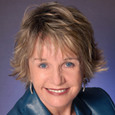Different people will react to a given situation in different ways, and your reaction determines your behavioral style. These styles depend largely on how people approach a problem. Similarly, the way you interact with people and influence them is also significant. Other important factors include your pace and the extent to which you follow procedures and rules.
William Marston, an American psychologist of the early 20th century, wanted to study human behavior, so he developed a model of human response. This model described four categories of behavior: dominance, influence, steadiness, and conscientiousness. This is the foundation of the DiSC model, which continues to be among the most popular and influential personality assessments available.
Dominance: Direct & Decisive. D's are strong-willed, strong-minded people who like accepting challenges, taking action, and getting immediate results.
influence: Optimistic & Outgoing. I's are "people people" who like participating on teams, sharing ideas, and energizing and entertaining others.
Steadiness: Sympathetic & Cooperative. S's are helpful people who like working behind the scenes, performing in consistent and predictable ways, and being good listeners.
Conscientiousness: Concerned & Correct. C's are sticklers for quality and like planning ahead, employing systematic approaches, and checking and re-checking for accuracy.
Understanding the behavioral style of an organization’s workforce has an impact on its performance and development. This understanding allows the organization to develop performance-improvement methods and strategies based on individuals’ personal strengths and weaknesses. It also facilitates better relationships among staff, peers, managers, and clients, which is the foundation of a strong and competitive organization.
Understanding these different behavioral styles allows a manager to tailor his or her approach to a given person and a given situation. This makes it easier to handle the complex relationships in an organization while minimizing miscommunication and conflict.
Barbara Stennes is a CSP (Certified Speaking Professional), President and Owner Resources Unlimited who conducts training sessions and facilitates meetings to help organizations focus on their real business issues such as creativity and innovation, team building, and customer service. Barbara's work in creativity and innovation utilizes the thinking systems from Dr. Edward de Bono, world-renowned creative thinker. Barbara is also an Authorized Inscape Publishing Distributor, offering the Online DiSC Classic Profile and other learning assessments from Inscape Publishing.
For more information, call 515.278.1292 or email info@ResourcesUnlimited.com.

Post new comment
Please Register or Login to post new comment.